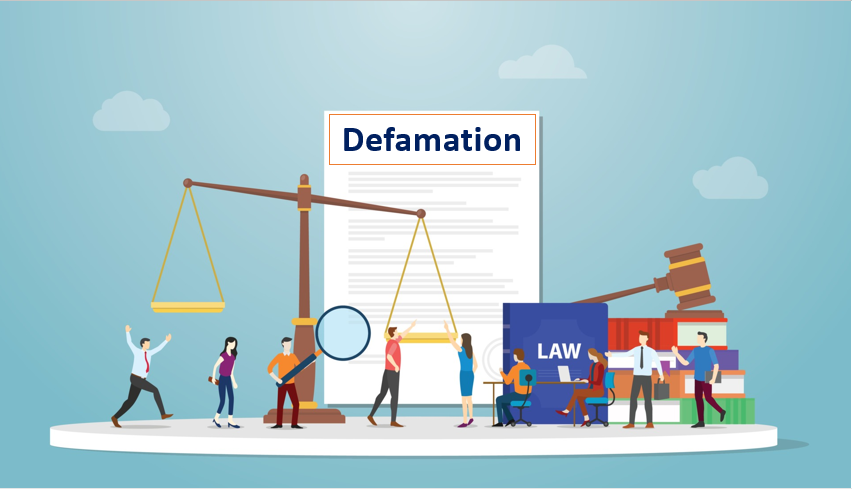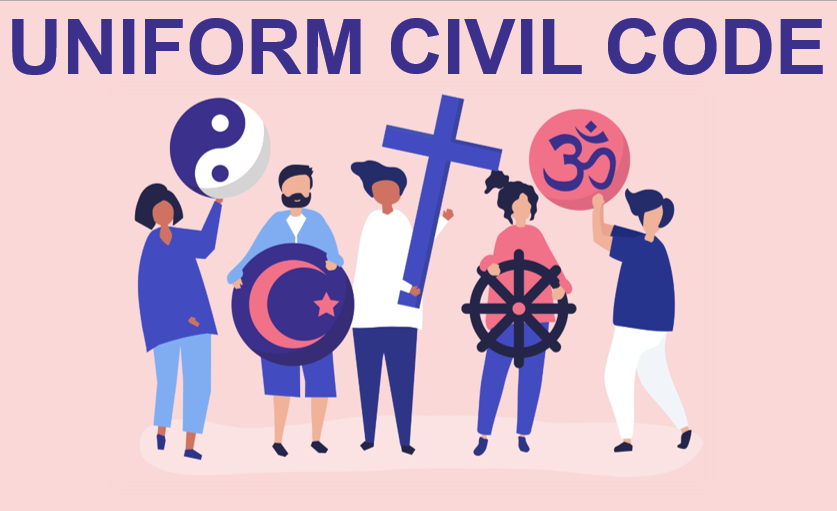Published On: 3rd September, 2024
Authored By: Debapriya Chakraborty
Symbiosis Law School, NOIDA
Introduction and Background:
Marriage is the foundation for a strong family, the happy state between two people who become husband and wife, and a long-lasting union of the hearts. Marriage was once seen as a religious, social, and cultural institution rather than a legal one, but as time went on, it evolved into a contract that is subject to legal obligations. According to the law, marriage is an agreement between a man and a woman to support one another in a joint household. “Both article 16[2] of the 1948 Universal Declaration of Human Rights and article 21[1] of the Indian Constitution recognise the right to marriage.” (Matrimonial Laws in India: An Overview, 2001)
Matrimonial laws in India were drafted on the basis of the English Matrimonial Laws drafted by Warren Hastings in 1772. However, there isn’t a single, universal body of law governing marriage; instead, there are diverse laws for many religions. We have the “Hindu Marriage Act of 1955 (India Code, 1955), Muslim Personal Law (Shariat) Application Act of 1937 (India Code, 1937), Indian Christian Marriage Act of 1872 (India Code, 1872), and Parsi Marriage and Divorce Act of 1936 (India Code, 1936), respectively, for Christians and Parsis.”
Section 2 of the Hindu Marriage Act of 1955 states that the law is applicable to anyone who is born a Hindu or has converted to any of its forms like “Lingayat, Virashaiva or a follower of the Arya, Prarthana or Brahmo Samaj.” The ambit of the term ’Hindu’ further extended to Jains, Sikhs and Buddhists under the pursuance of Section 25(2)(b) of the Indian Constitution. (Concept of Marriage under Hindu Marriage Act , 2021)
Therefore, a Hindu Marriage is not merely a contract or a non-secular sacrament but rather a blend of both “in which a man and a woman are in a permanent relationship for the physical, social and religious need of dharma, procreation and sexual pleasure.” (Concept of Marriage under Hindu Marriage Act , 2021)
Under Muslim law, “Nikah,” which means “to be bound together,” is used to refer to marriage. It is both a commitment as well as a binding contract. Marriage is a social institution that promotes human growth and ensures the survival of the human race. The primary goal of marriage is to safeguard society against unchastity and immorality by defining roles and obligations of the parties in the interest of society. (Marriage under Muslim Law, 2021)
By virtue of Section 4, in addition to marriages between Christians, the Act also legalizes unions between Christians and non-Christians as long as they are performed in pursuance to the provisions. The learned Gujarat High Court in “Subhashchandra Ishudas Parmar v. State of Gujarat” stated that in a marriage between a non-Christian and a Christian, the former need not engaged in proselytization. (Marriage Laws in India : An Analysis of Legal Solemnization of Marriages, 2021)
Objectives:
- What are the essentials of a valid marriage under different matrimonial laws in India?
- Under what circumstances does a marriage become void or voidable under these laws?
- What are the legal consequences of such marriages?
Analysis:
- Essentials of a Hindu Marriage:-
According to Section 5 of the Hindu Marriage Act, 1955, any two Hindus may get married as long as the following requirements are met: (Indian Kanoon, 1955)
- neither party is already married;
- At the time of the marriage, either party (a) was insane and incapable of giving their consent legally; (b) had a mental disorder severe enough to make them unfit for marriage and childbearing; or (c) had experienced recurrent episodes of insanity.
- At the time of marriage, the bridegroom was twenty-one years old and the bride was eighteen;
- Unless the custom or usage governing each of them permits a marriage between the two, the two parties are not in the category of relationships that are prohibited;
- Unless the tradition or usage governing each of them permits a marriage between the two, the two parties are not sapindas of one another.
Hindu marriages may be performed in accordance with Section 7 of this Act using the customary rites and rituals of either party, such as the saptpadi, which entails the bridegroom and bride taking seven steps together in front of a sacred fire (the marriage is complete and binding when the seventh step is taken), and each party to the marriage declaring that they take the other to be their wife in a language that is understood by both parties, tying the thali, or each party. (Indian Kanoon, 1955)
According to Section 8, the registration of Hindu marriages served as legal documentation of the union. Failure to register is penalised by a fine up to 25 rupees. This registration was open to public scrutiny at any time. According to Section 8(5), failure to register will not invalidate a marriage. (Indian Kanoon, 1955)
However, the Supreme Court recently ruled in “Seema v. Ashwani Kumar”, that all marriages between Indian citizens of different religious backgrounds should be subject to mandatory registration. Most conflicts might be easily avoided if the marriage was registered. Women’s rights were protected through registration, which also helped to prevent problems with the children’s legal status. The rights of children are also secure.
Conditions for Void Marriages under Hindu Law:-
Section 11 explained the concept of void marriages. Any marriage in contradiction to the clauses (i), (iv) and (v) of Section 5 is deemed to be void. (Indian Kanoon, 1955)
In “Vinita Saxena v. Pankaj Pandit”, both parties had mental illnesses and were unable to have children which serve as a basis for annulling the marriage. (Matrimonial Laws in India: An Overview, 2001)
In the case of “M.M. Malhotra v. UOI”, the husband was getting married to another woman, without terminating the first marriage. The court declared the second marriage to be invalid and void, because it violated section 5’s clause (i) on legitimate marriage (Concept of Marriage under Hindu Marriage Act , 2021)
Legal Consequences of Void Marriages:
- Children from void marriages do not have the right in the joint families of their parents.
- They are entitled to the parents’ self-made property.
- Spouses are ineligible to make any matrimonial claims.
- In a void marriage, the partners don’t have the status of husband and wife.
Conditions for Voidable Marriages under Hindu Law:
Section 12 states that any marriage that was solemnized—whether it took place before or after the passage of this law—is voidable if: (Void and Voidable Marriages under Hindu Marriage Act, 2020)
- Due to the respondent’s impotence, the marriage has not been consummated.
- The marriage violates the restrictions outlined in Section 5.
- The petitioner’s guardian’s consent was coerced or defrauded into giving it.
- The respondent is already pregnant by another person at the time of marriage.
Legal Consequences of Voidable Marriages:
- Unless the court rules otherwise, the marriage is completely valid.
- Full consequences such as right in property, conjugal rights and maintenance until the marriage lasts.
- Court decree is mandatory. If neither party files a petition for annulment, the marriage will stand valid.
Essentials of a Muslim Marriage (Essential Conditions of a Muslim Marriage, 2019):
- Offer and Acceptance: In a Muslim marriage, a proposal is called ‘ijab’ and acceptance is called ‘qubul’. Either party can make a proposal and accept the same offer accordingly. Since Muslim marriages are also contracts, proposal, and acceptance are necessary to initiate the marriage. If a proposal is made at the first meeting and it is accepted in another meeting, it cannot be considered valid. Because offer and acceptance should be done at the same time.
- Competent to contract: Both the parties should have attained the age of puberty i.e., 15 years of age and should be of sound mind to enter into a contract of marriage.
- Free consent: Their consent should be obtained freely without any undue influence, coercion, fraud or misrepresentation.
- Legal impediment: There should be no legal impediment to the marriage of the parties.
Conditions for Void Marriages under Muslim Law:
Any marriage in contradiction to the aforementioned clauses will be deemed as void under the Muslim Law. Following are additional situations where the marriage will be void:
- “Marriage in violation of absolute capacity.
- Marriage with a Non-Muslim.
- Marriage with a fifth wife.
- Marriage with a woman undergoing Iddat.”
In “Sayad Mohiuddin v. Khatijabai”, the court ruled that the marriage of a Shafei girl who had reached puberty and was married by her father without her consent was invalid. (Classification of Marriage under Muslim Law, 2021)
Legal Consequences of void marriages: (Classification of Marriage under Muslim Law, 2021)
- If the marriage has been consummated, the wife may still claim Dower but not compensation.
- Children born from such marriages are considered to be illegitimate.
Essentials of a Valid Marriage under Christian Law (Christian Law related to Marriage and Divorce in India, 2020):
- According to Section 4 of the Indian Christian Marriage Act of 1872, a marriage between Christians in which one of the parties is a Christian must be solemnized in accordance with the provisions; otherwise, it will be void.
- According to Section 60;
- The bride’s age cannot be less than 18 and the groom’s age cannot be less than 21.
- When the marriage takes place, either parties shall not be married to another person.
- The marriage must take place in front of a S.9-licensed individual and two reliable witnesses.
- According to Section 88, a marriage between a Christian and a person of any other religion will be deemed as void if that person’s personal laws forbid marriage with a Christian.
Conditions for Void Marriages under Christian Law:
Any marriage in contradiction to the aforementioned clauses will be deemed as void under Christian Law.
The marriage is null and void in accordance with Sections 26 and 52 if it is not solemnised within two months of the notice being issued. (Rights of Illegitimate Chilfren under Christian Law, 2016)
In “Gnanasoundari vs. Nallathambi and Others,” The Madras High Court explained that Section 88 of this Act prohibits marriage on the basis of blood ties and affinity. (Christian Law related to Marriage and Divorce in India, 2020)
Legal Consequences of Void Marriage:
Therefore, children born out of any type of void marriage are not forbidden from inheriting their parents’ estate; instead, they are only disqualified if they were born out of a prohibited degree or when one of the parties was rendered impotent.
Christian law indicates there is discrimination between children who were born from different types of void marriages.
Conclusion:
Indian society is changing, yet the outdated rules that still govern us need to be altered. Particularly in statutory legislation, change is required to remove the stigma associated with the touchy subject of void and voidable marriages. We must adopt a more open and logical mindset, which can be expanded further when the government introduces the Uniform Civil Code in the ensuing years.


